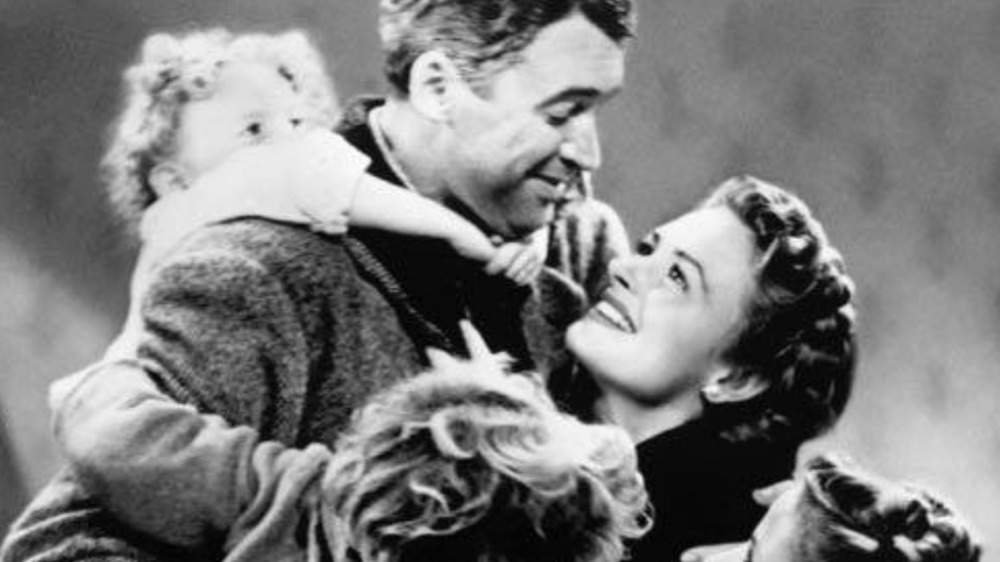Why It's A Wonderful Life Could Never Be Remade Today, According To George Clooney
As far as Christmas movies go, It's a Wonderful Life is the gold standard, which is quite the accomplishment considering the holiday is used as a framing device for the larger story of everyman George Bailey (James Stewart) realizing his self worth. George spends the majority of the runtime dreaming of escaping the small town of Bedford Falls only to make sacrifice after sacrifice for his family and town as they face the money-grubbing ways of Mr. Potter (Lionel Barrymore). Some viewers have declared the film's message that "no man is a failure who has friends" schmaltzy, but others, including George Clooney, believe It's a Wonderful Life is a perfect film.
During an interview with Netflix, Clooney shared his love for It's a Wonderful Life, while also admitting that the movie could never be made today. His reasoning? Mr. Potter's lack of comeuppance for his awful deeds wouldn't fly in a modern movie.
"It's a Wonderful Life is a perfect film," Clooney explained. "And I'll tell you why. Because you couldn't do this film anymore. The bad guy, Lional Barrymore, Mr. Potter, doesn't get "got" at the end. He does a terrible thing to Jimmy Stewart, tries to ruin his life. If you made the movie today, you would have to see him being carried out in handcuffs ... But they didn't do it, because they just showed you that living well is the best version of life."
Why George Clooney's assertion that It's a Wonderful Life could never be made today holds up
Clooney's belief that the Frank Capra holiday classic wouldn't have the same effect if it was made now holds up. In 1986, Saturday Night Live took aim at the ending by imagining an alternate version where the entire town teams up to attack Mr. Potter for his various misdeeds. It's at once hilarious and cathartic, and exactly the kind of ending viewers have come to expect in a world where superhero movies reign supreme (although, superheroes are rarely as violent as the SNL cast's characters are in that sketch).
Still the "alternate ending" proves Clooney's point: We crave a tidy resolution when it comes to villains, but It's a Wonderful Life resists the urge to punish Mr. Potter for his crimes. Ultimately, it's a choice that smacks of realism — rich men do often get away with treating people however they like. But the real victory is in George realizing his own value and seeing how much he's loved and appreciated by his family, friends, and neighbors.
In his book 52 Little Lessons from It's a Wonderful Life, author Bob Welch recounted a 1968 Q&A with Capra, in which the director shared why he wasn't concerned with punishing Mr. Potter in the film. "[O]ur main interest was what happened to George Bailey," Capra said, as reported by The Week. "This Lionel Barrymore (the actor who played Potter) character was too crusty, too old, too happy with what he was doing to change. So we just left him as he was."
Leaving Mr. Potter unchanged may deny viewers a tidy ending, but that's exactly why the movie is considered "perfect" in the eyes of fans like Clooney, who appreciate the film's willingness to not wrap every plot point up in a tidy bow.

